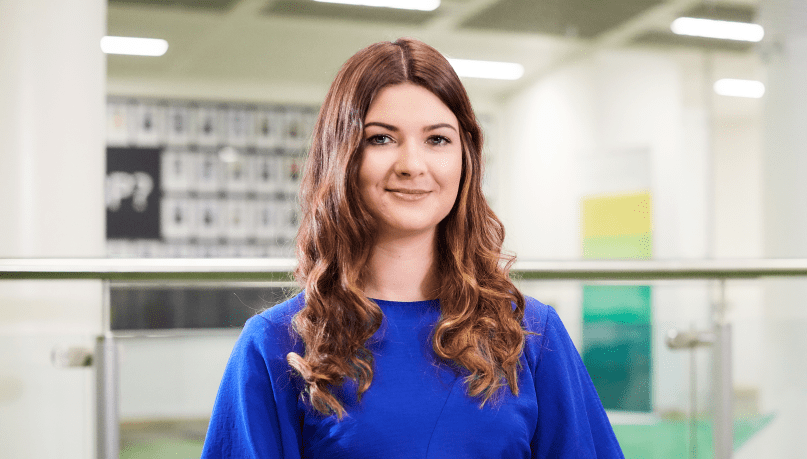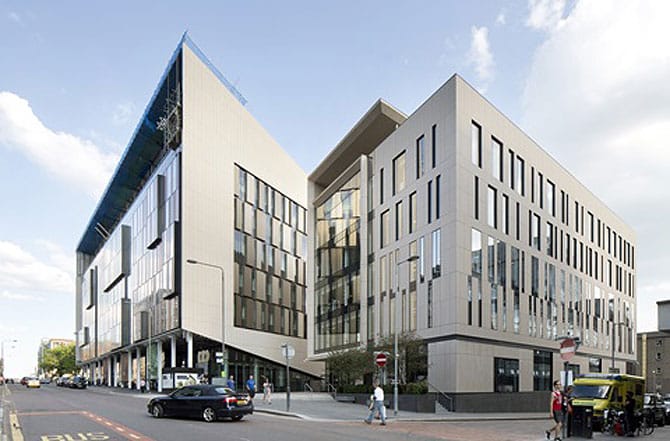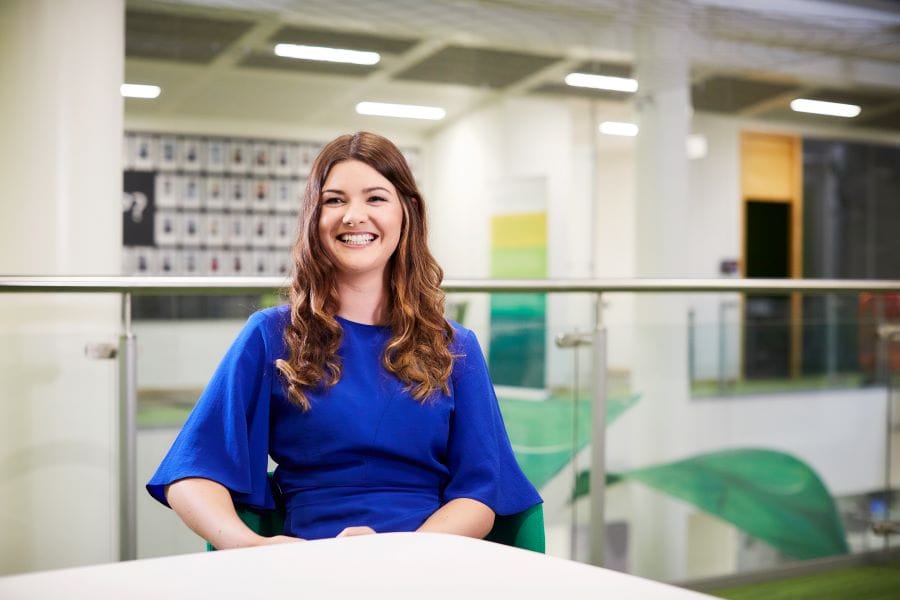
What led you into engineering?
My favourite subjects in school were maths, physics and art & design. I began to explore my career options with the intention of developing these subject areas in higher education.
My father was an engineer and was able to give me a deeper insight into the vast opportunities that would be available to me following a degree in engineering.
He has worked in the energy industry for 25 years, so I knew about the job opportunities available to me right from the start. In this way I consider myself quite lucky, as I find that generally STEM jobs are not well advertised to a female audience. As engineering was in my family, I had a bit of background and knowledge of what the possibilities were.
Another factor that led me into engineering was that I’m a strong believer that you need to do something you love. I wanted to pursue a career I liked and one I would be happy with every day. I enjoyed STEM from an early age, so I knew that engineering was something I wanted to pursue as a career.
Where/what did you study at uni?
I moved from the Highlands in Scotland to Glasgow to study Civil Engineering at the University of Strathclyde, where I completed a combined Masters Degree from 2008 to 2013.

Throughout my Masters, I focused on subjects involving offshore energy and renewables. This inspired me to go into the energy sector, where engineering is a crucial discipline to help meet increasing energy demands globally. I graduated in 2013 and took a year out travelling around South America before joining the Challenge Programme, BP’s graduate scheme.
What attracted you to BP?
I first learnt about career opportunities when I attended a careers open day at Strathclyde University. BP employees came in to chat to us and I had the opportunity to speak to graduates on the Challenge Programme about the career opportunities available to me.
In addition to meeting BP graduates, I knew I wanted to work somewhere where I could get to experience a project from start to finish and see the bigger picture. BP’s Challenge Programme is structured to give you the opportunity to rotate between jobs, working in multi-cultural teams and meeting different people, which really appealed to me. Working here, you get to work with a diverse and talented set of people every day.
What was the application process like for the Challenge Programme?
The application process for the graduate scheme at BP is not dissimilar to many others, in that it is a bit complicated. My advice to future graduates is to read the values of a company and try to relate to these because you will live these everyday once you work for a company. For example, when I read BP’s values, I could personally relate to safety. Make your application personal and for interviews bring your personality to the forefront.
You will go through assessment centres where you will be asked to work in small groups to solve problems in a given timeframe. My best advice here is to listen to your colleagues, treat everyone with respect and bring everyone into the conversation.
Can you tell us a bit about the major projects you’ve worked on?
I joined the Challenge Programme in September 2014 and since then I have worked on some very large, challenging and very cool projects for BP!
I worked on a major project in the North Sea called Quad 204, which was developed by BP’s Global Projects Organisation, where I was part of the construction and installation team. My main responsibilities were to prepare for the summer offshore pipelay campaign. This was very new to me having just completed a degree which focused on designing concrete structures, but I embraced the experience. Within my first year of joining I had already completed my offshore survival training and been offshore on several different construction vessels, installing subsea equipment for structures and pipelines.
In 2015, I was given the opportunity to lead one of the offshore projects from concept through to execution. This involved assembling and deploying a flexible pipe, which provides subsea connections between the rigid pipelines and the structures. I was required to manage a team from an external installation contractor, which provided me with leadership and managerial skills. I was onsite at the fabrication yard for the build of the product and again I went offshore to deliver the execution.
Once I competed this project, the riser installation team asked me to support their offshore campaign. In the summer of 2016, I spent 28 day periods offshore, building flexible pipe which transports hydrocarbons from the seabed at 400m water depth, up to the floating production storage and offloading facility (FPSO). There is no greater job satisfaction than seeing something you have worked on being constructed in real life.
I moved to London in May 2017 to work for the BP Azerbaijan team. I worked within the Marine and Subsea Engineering Team on a mega project in the Caspian Sea known as Shah Deniz 2. The project was the largest project ever executed by BP, so it was an exciting opportunity. I was responsible for the engineering resolution of construction issues and late design issues. I also worked on brownfield developments, where I was responsible for the design of a subsea gas lift system, to ensure both the safe installation and operation of the system.
https://www.youtube.com/watch?v=aJoR__hmIGE
My current job title is Subsea Construction Engineer, working for a project which will be executed in West Africa. This is an exciting opportunity to get involved in a new region at the front end of a flagship project for BP, working in ultra-deep water depths which is a new challenge for me.
Offshore is often considered a difficult environment for women. Have you found that to be the case?
There have been times when I was the only woman on-board the construction vessel.
This never put me off, as I loved the front end execution work and found the experience to be invaluable. Personally, I think the best way to grow as a person is to challenge yourself to go outside of your comfort zone.

I now really enjoying being onsite and offshore. My role is hugely diverse, and it just goes to show that there is so much you can do with an engineering degree. It is such a varied, problem-solving discipline that can really set you up for life. It is also quite challenging and demands adaptability, and since I’m very open to change and new challenges, it really fits the type of rewarding career I always wanted.
How do you see your career progressing over the next 5-10 years?
In the next 5 – 10 years I would like to develop my skills in offshore installation, management and leadership skills, and attain higher levels of responsibility. One day I would like to lead teams and help develop the next generation of engineers.
Thanks Emily!




Collaboration to address viable solutions for VAWG database
<blockquote>address the lack of standardisation, coordination, and collaboration of gender disaggregated data intelligence across various regions,...